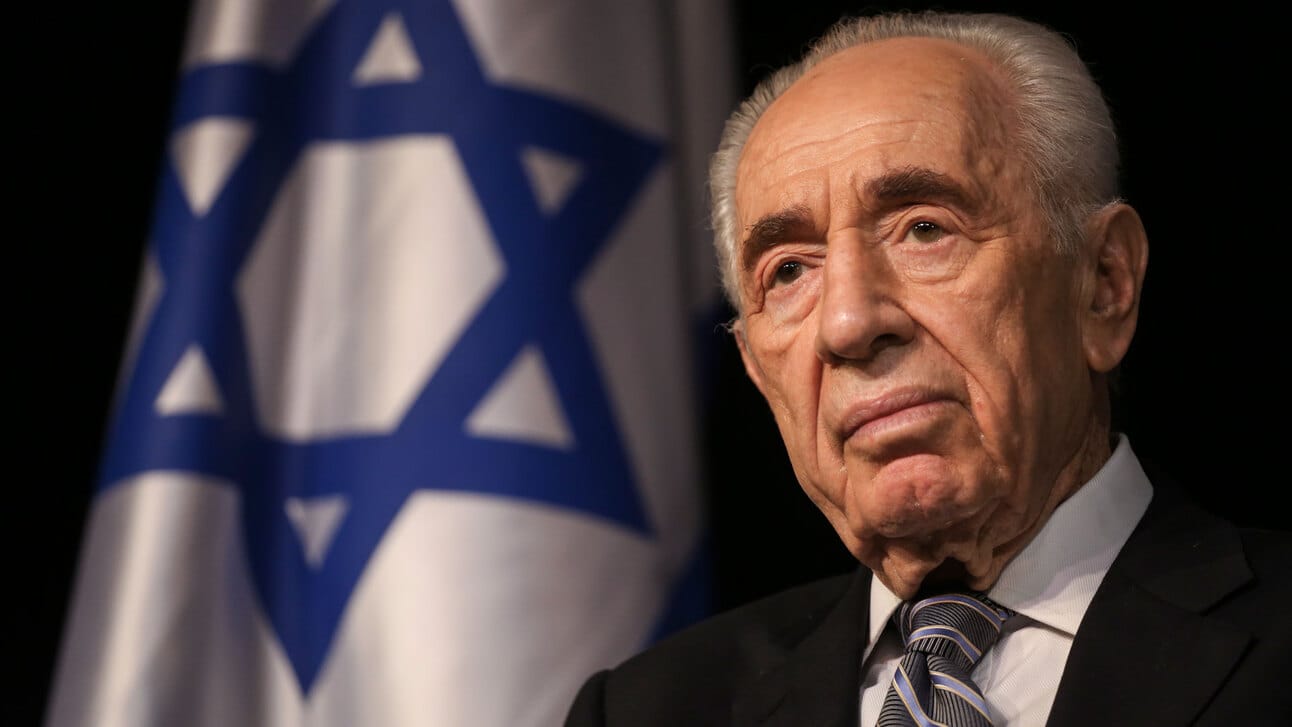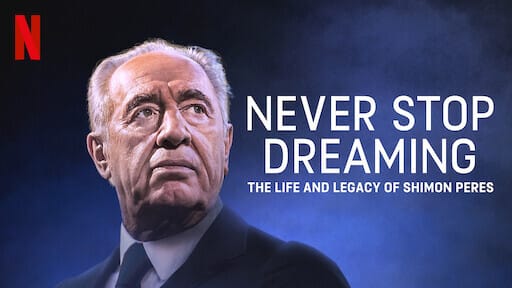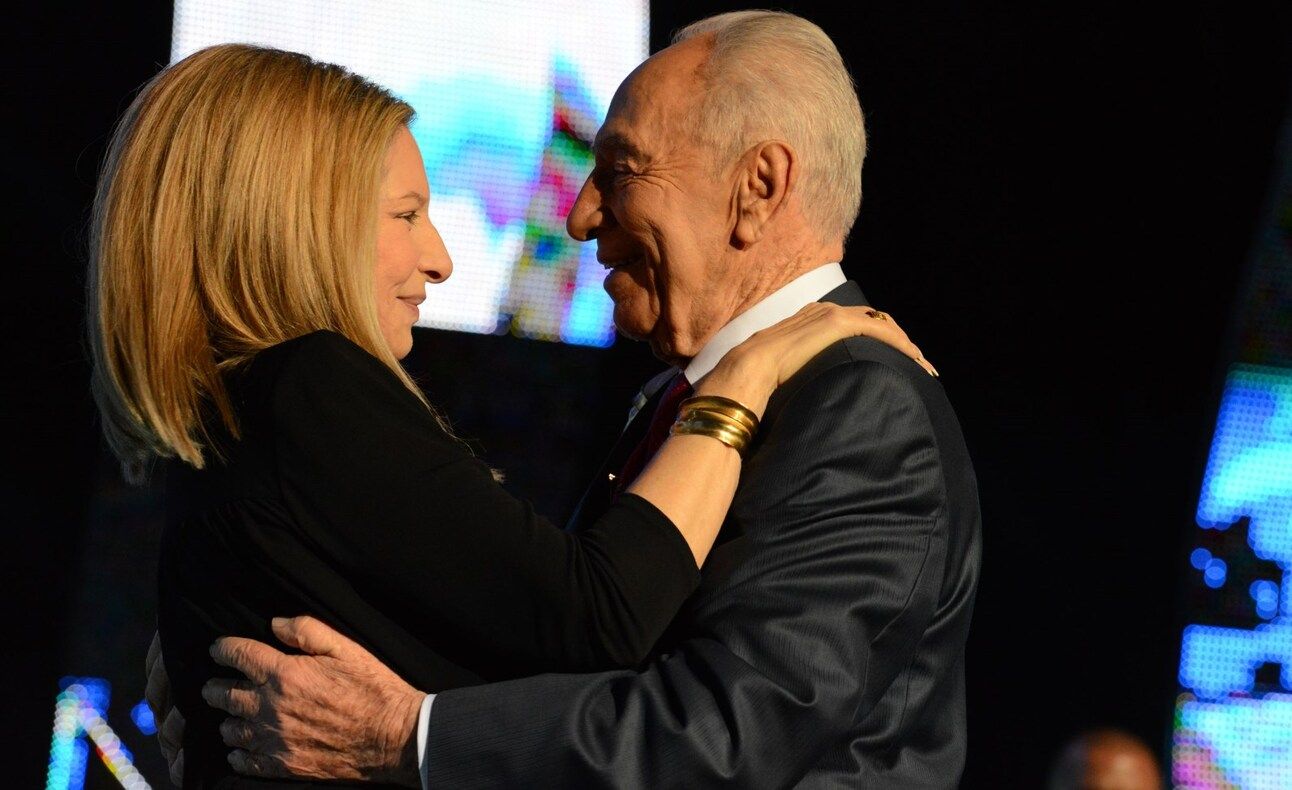- The Weekly Mensch
- Posts
- The Weekly Mensch: Shimon Peres
The Weekly Mensch: Shimon Peres
A universal definition of big dreams through the life of a pioneer statesman with a legacy of impact

Us in a Nutshell
We are passionate about the lives, the impact, and the experience of Jewish baby boomers who have changed our world. From finance to the arts, we write about the stories of contemporary heroes who — significantly and meaningfully — changed the face of their respective industries, often starting with nothing but a legacy of exile. We tell their stories for the timeless lessons of intelligence, ethics, and resilience they underline. And we also share some fun anecdotes! Nathan Tob is a fourth-year student at the Queen Mary University of London. He studies Economics, Finance, and Management. Davy Sokolski is a third-year student at Columbia University in New York. He studies International Political Economy.
What is a Mensch?
Leo Rosten defines mensch as “someone to admire and emulate, someone of noble character.” Dr. Saul Levine writes in Psychology Today that a mensch’s personality characteristics include decency, wisdom, kindness, honesty, trustworthiness, respect, benevolence, compassion, and altruism.
Shimon Peres’ Rapid Bio

Shimon Peres, born Szymon Perski on August 2, 1923, in Vishneva, Poland, was a statesman, visionary, and one of the architects of modern Israel. Raised in a deeply Jewish household, Peres’s values were shaped by his grandfather, Rabbi Zvi Meltzer, a Talmudic scholar whose teachings of justice and resilience left a lasting impact. In 1934, his family immigrated to Mandatory Palestine, escaping rising anti-Semitism in Europe. The tragedy of the Holocaust, which claimed many relatives, reinforced Peres’s lifelong commitment to ensuring the safety and future of the Jewish people.
In his early years, Peres joined the Haganah, Israel’s pre-state defense force, where his leadership skills quickly emerged. By the age of 24, David Ben-Gurion, Israel’s founding Prime Minister, appointed him head of the Naval Services at the Ministry of Defense. Peres played a pivotal role in securing arms for Israel’s fledgling military during the War of Independence and in forging Israel’s first defense alliances, most notably with France. He was also instrumental in the establishment of Israel’s nuclear deterrent, a key to the nation’s long-term security.
Peres’s political career spanned over 70 years, during which he served as Prime Minister, President of Israel, and in multiple ministerial roles, including Defense and Foreign Affairs. A central figure in Israel’s history, he was a relentless advocate for peace. He negotiated the Oslo Accords in 1993, which led to the first formal recognition between Israel and the Palestinian Liberation Organization. For his efforts, he was awarded the Nobel Peace Prize in 1994 alongside Yitzhak Rabin and Yasser Arafat.
Beyond politics, Peres championed innovation, earning him the title of the father of Israel’s Start-Up Nation. He envisioned Israel as a hub for technology and science, advocating for a shift from agriculture to high-tech industries. In 1996, he founded the Peres Center for Peace and Innovation, which promotes dialogue and partnerships across divides through education, technology, and cultural exchanges.
Peres passed away on September 28, 2016, at the age of 93, leaving behind a legacy of resilience, innovation, and a tireless quest for peace. His funeral, attended by global leaders such as Barack Obama, Bill Clinton, and Prince Charles, was a testament to his unparalleled impact.
Shimon Peres is remembered as a statesman of hope, a trailblazer of innovation, and a peacemaker who dedicated his life to shaping a better future for Israel and the world. His vision continues to inspire leaders across generations.
Shimon Peres’ Five Lessons
1. Dream big, act bigger
Shimon Peres believed that the only limits to progress were the boundaries of one’s imagination, and the courage to act. One of his most transformative contributions came in the 1950s when he spearheaded Israel’s nuclear program. At the time, Israel was a young nation facing existential threats, surrounded by hostility, and with very limited natural resources. Few believed the country could achieve such an ambitious goal. Yet, Peres saw beyond the immediate obstacles and envisioned a future where Israel could secure its independence through technological and military self-reliance. He tirelessly negotiated with France to gain access to the necessary expertise and resources, working around the clock to overcome political resistance and logistical challenges. The Dimona nuclear reactor became a reality under his leadership, symbolizing not just Israel’s security but also the power of visionary leadership. For Peres, dreaming big wasn’t enough—it was about taking decisive action, even in the face of doubt and skepticism.
Dreams are where progress begins, but it's action that gives them the chance to take root and grow. Without stepping up and doing the work, even the best ideas remain just that—ideas. Peres’s life teaches us that true success requires not only envisioning a bold future but also taking the risks and steps necessary to bring it to life. Whether in personal aspirations or professional endeavors, acting boldly on a vision can turn the seemingly impossible into reality.
2. Lead with humility and a sense of service
For Peres, leadership wasn’t about wielding power but about enabling others to rise. Despite holding some of Israel’s highest offices, Peres always approached his roles with humility. An anecdote from his presidency captures this perfectly: when visiting a group of young entrepreneurs, Peres listened intently to their pitches, engaging with their ideas as if he were a peer rather than a statesman. He didn’t dominate the conversation or dictate advice but asked thoughtful questions that helped them refine their visions. His humility extended even to political adversaries; he famously said, “When you have two opinions, you have to find a third. The more opinions, the better the solution.” This mindset wasn’t limited to diplomacy—it defined his approach to leadership at every level. Peres believed that empowering others created stronger systems and more sustainable outcomes than seeking credit for oneself.
Leadership isn’t about commanding attention, it's about building bridges and fostering collaboration. Peres’s humility reminds us that great leaders focus on the success of their team, their community, and the next generation. By leading with service, we can inspire trust, collaboration, and long-lasting impact.
3. Turn obstacles into bridges
Shimon Peres saw every challenge as a chance to innovate and grow, a mindset that defined his approach to leadership. During the Oslo Accords in the 1990s, Peres faced immense resistance from both Israeli and Palestinian sides, as well as from global skeptics. Yet, instead of retreating, he viewed the process as an opportunity to take steps toward peace. When the negotiations seemed destined to fail, Peres worked behind the scenes, often conducting late-night meetings to bridge divides and rebuild trust. His efforts weren’t about immediate results but about laying a foundation for future dialogue. He once remarked, “Optimism is the ability to face reality and improve it.” The accords, while considered imperfect by some, became a testament to the idea that even in the face of failure, attempting to create understanding is better than accepting the status quo.
Adversity often holds the seeds of opportunity if we approach it with resilience and creativity. Peres’s life teaches us that challenges, no matter how daunting, can be transformative moments when met with determination and vision. Embracing difficulty isn’t just about survival—it’s about creating a better future.
4. Invest in tomorrow’s innovators
Peres had an unwavering belief in the power of youth and innovation to shape the future. He was instrumental in establishing Israel’s high-tech sector, earning the nation its reputation as the “Start-Up Nation.” At the age of 90, Peres didn’t rest on his laurels; instead, he launched the Peres Center for Peace and Innovation, a hub dedicated to fostering creativity and collaboration. At the opening of the center, he shared an anecdote about meeting young tech entrepreneurs who were pitching ideas that many dismissed as naive. Peres, however, encouraged them, saying, “Innovation doesn’t need permission. It needs passion.” His belief in nurturing talent wasn’t just rhetoric, it was backed by his actions, from mentoring individuals to creating institutions that empowered generations.
The future belongs to those we equip to build it. By investing in education, creativity, and the potential of others, we create a ripple effect of progress that transcends our own lifetime. Peres’s dedication to empowering young minds reminds us that nurturing talent and innovation is one of the most impactful legacies we can leave.5. Take the time to care
5. Legacy is built through actions, not words
For Shimon Peres, legacy wasn’t about personal accolades or titles—it was about the enduring impact of his actions. One defining moment came when Peres championed the establishment of Israel’s aviation and aerospace industries. While skeptics dismissed the idea as overly ambitious for a small, resource-strapped country, Peres pushed forward, gathering experts, securing international partnerships, and meticulously overseeing the foundation of what would become Israel Aerospace Industries. This initiative not only fortified Israel’s defense capabilities but also spurred innovation that influenced global technology. When asked about his vision for legacy, Peres remarked, “Dreams are not something you inherit; they are something you build.” His belief in the transformative power of hard work and action defined his career and inspired those around him.
Legacy isn’t found in words or intentions, it’s created through meaningful actions that empower others and endure through time. Peres’s life reminds us that true impact is measured by what we build, who we uplift, and the dreams we help others realize. Whether in business, community, or personal life, focusing on the tangible and empowering others ensures that what we leave behind continues to inspire and evolve.
The Quote of The Week
“Being Jewish meant many things to me, but first and foremost it meant having the moral courage to do what was required on behalf of the Jewish people”



Reply